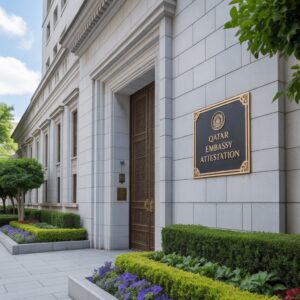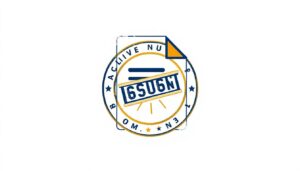
Birth Certificate Attestation: Prove Authenticity of Your Document Abroad
Introduction
Planning to live, work, or study in another country? Then you’ll need to prove your birth details are genuine. Birth certificate attestation is the key to making your document valid outside your home country. It helps authorities verify your identity and avoid legal issues. As the world becomes more connected, more people need trusted ways to authenticate their vital documents. Attestation services are now essential tools for international mobility, clearing the way for smoother transitions.
Understanding Birth Certificate Attestation
What is Birth Certificate Attestation?
Birth certificate attestation is a formal process that confirms your document is authentic. It involves verifying its legitimacy through official authorities. Basically, it’s like a stamp of approval, showing your birth details are real and legally recognized. This process is crucial when applying for visas, jobs, or university placements abroad.
Why Is Attestation Necessary for International Purposes?
Many countries demand attested documents before granting visas, work permits, or university admission. Without proper verification, your application could get rejected. Embassies want proof that your birth certificate is genuine to avoid fraudulent claims. Attestation also helps in establishing trust between countries, ensuring your identity is confirmed.
Key Countries Requiring Attested Birth Certificates
Countries like the United States, Canada, Australia, the UK, and European nations have strict verification laws. Many require either notarization, attestation by government bodies, or an apostille. Check specific embassy websites, as each country has different rules for document acceptance.
Types of Birth Certificate Attestation
Single vs. Double Attestation
Single attestation is done in your home country, usually by a local authority. Double attestation involves getting an extra verification from the target country or its embassy. Double attestation adds extra security—especially for work and study purposes in foreign nations.
Apostille vs. Consular Attestation
An apostille is a certification for countries part of the Hague Convention. It’s a simple seal showing your document is verified. Consular attestation is needed for countries not part of this treaty. It involves verifying via your country’s embassy or consulate.
When to Use Which Type
Use an apostille if your destination country accepts this method—mainly in Western nations. Opt for consular attestation if you’re heading to countries outside the Hague Agreement. Always confirm what the embassy or consulate requires before beginning.
Step-by-Step Process of Birth Certificate Attestation
Preparing Your Birth Certificate for Attestation
Start by checking your document’s validity—ensure it’s recent and clear. You might need to translate it into the local language of your destination country. Some countries need notarized copies or extra affidavits. Keep digital and hard copies handy.
Attestation by Local Authorities
First, get your birth certificate attested by the relevant local authority, such as the Ministry of Foreign Affairs or a notary public. This step confirms your document’s authenticity in your home country. You may also need to visit a notary or regional government office.
Attestation by Embassies or Consulates
Next, submit your document to your country’s embassy or consulate for verification. Schedule an appointment online if necessary. Provide all required documents, pay fees, and wait for approval. This step ensures your certificate is recognized by the foreign government.
Final Attestation or Apostille by the Target Country
Once back in your destination country, you may need to get one final verification. This step can be through an apostille office or relevant government body. This final stamp confirms your birth certificate is legally valid abroad.
Tips for Ensuring Smooth Attestation Process
Verifying Requirements in Advance
Always visit official embassy or government sites to check requirements. Different countries have unique rules, and neglecting them can cause delays. Prepare all documents early to avoid last-minute stress.
Engaging Certified Agencies or Attestation Services
Hiring a professional service can save time. These agencies know the process inside and out. They also handle paperwork correctly, reducing errors and speeding up your application.
Addressing Common Challenges
Some common issues include document discrepancies, delays, or missing paperwork. Double-check all details, keep copies, and follow up regularly. If problems arise, work with experienced agents for quick solutions.
Real-World Examples and Case Studies
- Example 1: An Indian student attested her birth certificate for admission at an Australian university. She followed the proper steps and avoided delays by consulting an expert.
- Example 2: A Nigerian expatriate went through attestation to secure employment in Canada. He learned that early preparation and proper documentation made the process smoother.
- Both cases show that understanding the procedure and working with trusted services can prevent costly mistakes.
Expert Insights and References
Legal experts emphasize that correct attestation can prevent visa refusals and legal issues. Immigration authorities recommend verifying all document requirements beforehand. Official government websites provide updated rules—always check these before starting the process. Recent changes include faster processing times and online appointment booking in many countries.
Conclusion
Birth certificate attestation is vital for proving your identity abroad. It validates your documents and opens doors to new opportunities. Since each country has different rules, understanding their requirements is essential. Planning early, checking official sources, and working with professionals can make the process hassle-free. Start now—gather your documents, verify the rules, and use trusted services to ensure your move abroad goes smoothly.


